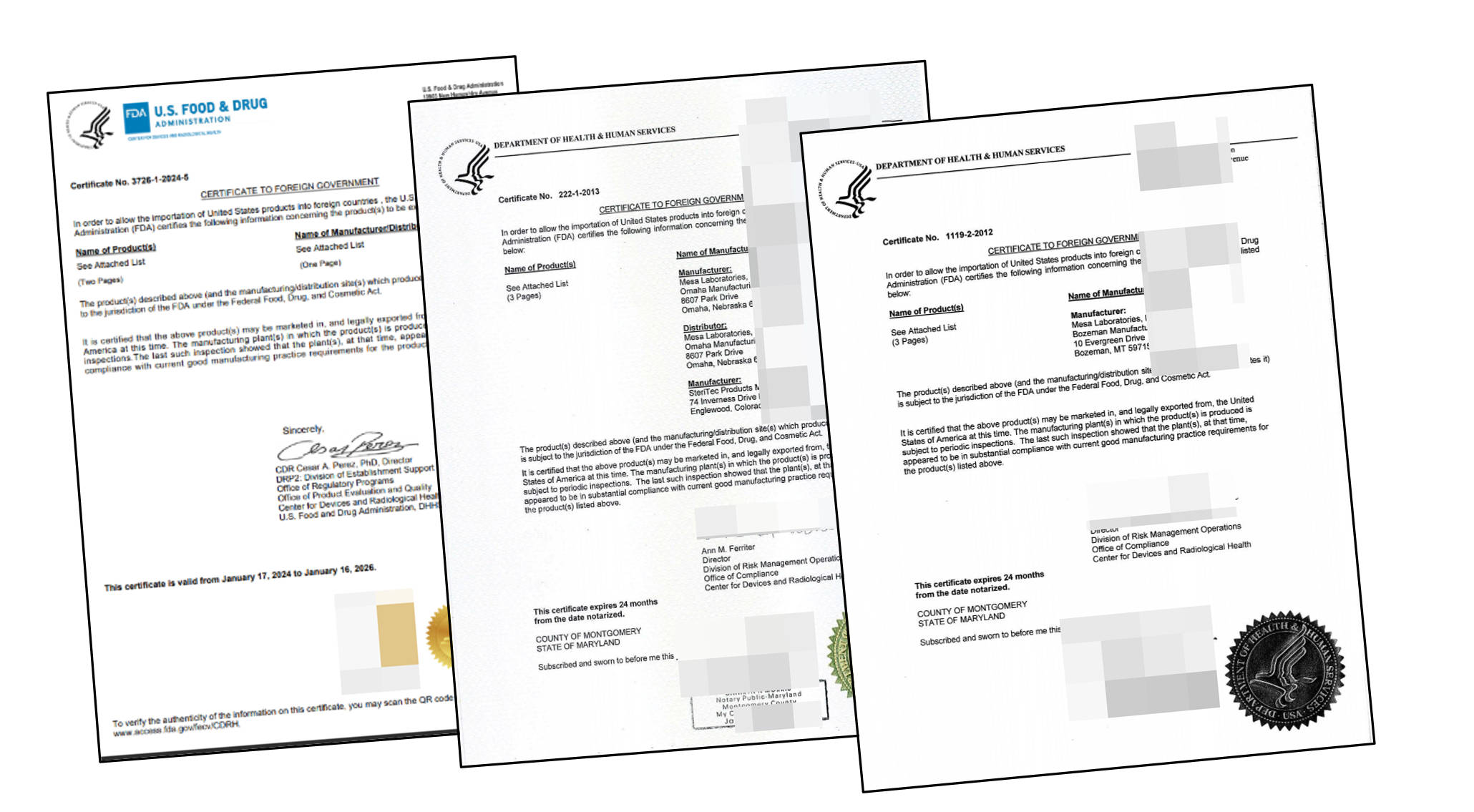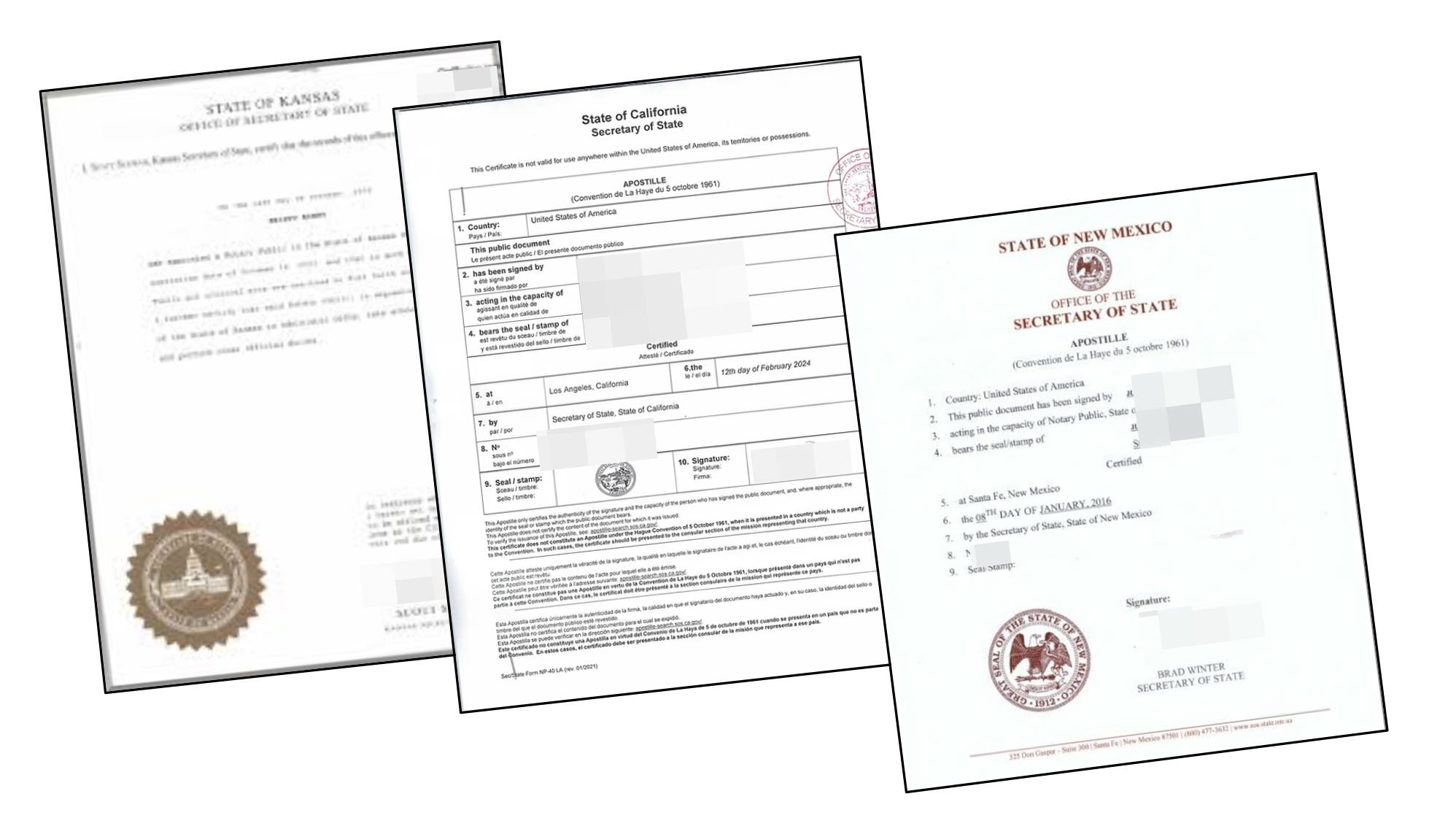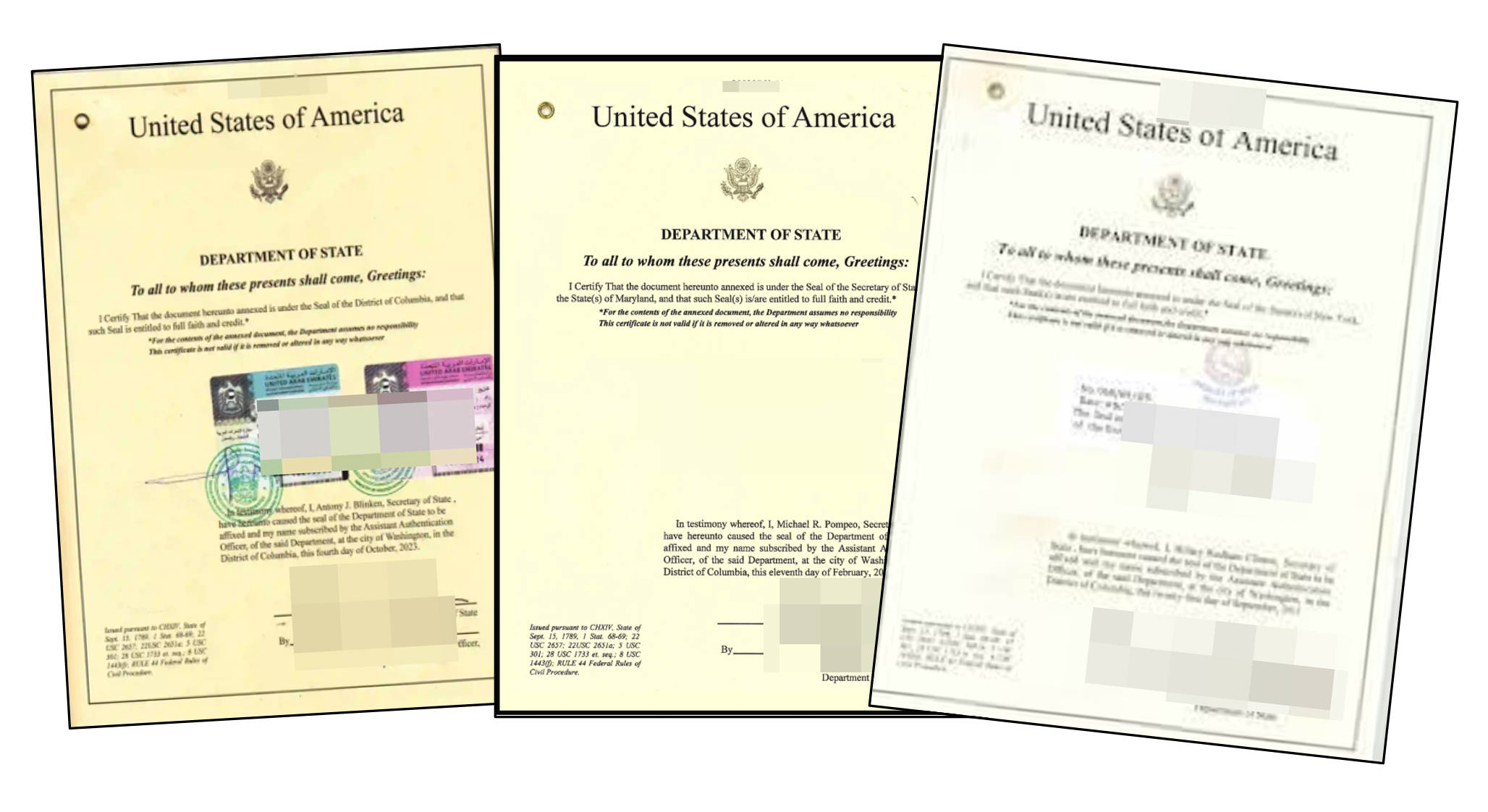U.S. foreign government statement Hague certification and consulate certification.

The Certificate to Foreign Government (CFG) is an official document that confirms a product complies with U.S. laws and regulations and can be exported to other countries. This certificate is mainly issued by the U.S. Food and Drug Administration (FDA) to help U.S. product manufacturers sell their products in international markets. When a foreign government requires proof that a product meets the regulations of the exporting country, the CFG becomes particularly important. Typically, the CFG is used for medical devices, pharmaceuticals, biological products, and other items regulated by the FDA.
Example of a Certificate to Foreign Government (CFG)
Many people find the Certificate to Foreign Government (CFG) a bit confusing. Simply put, it is an official certification document issued by the U.S. government for specific purposes and documents. Its main function is to meet the requirements of foreign governments or relevant authorities by verifying the authenticity and validity of U.S. documents.
In practical terms, if you have an official document issued in the U.S. and need to use it in China, especially in situations that require government endorsement, Chinese institutions often require proof from an authoritative body. This is where the CFG comes into play.
First, the CFG is typically issued by U.S. government agencies in specific states and cities. For example, in Maryland, the relevant State Department of Health and Human Services or a food and drug regulatory agency (depending on the nature of the document) may issue the certificate.
When U.S. companies export food, pharmaceuticals, or medical devices to other countries, they often need an official U.S. certification to confirm that their products comply with U.S. standards and regulations. Why is this necessary? Because when foreign governments review imported products, they require proof from U.S. regulatory authorities to ensure public health and safety. By providing a CFG, U.S. exporters can demonstrate that their products meet compliance requirements in the U.S. market.
In simple terms, the CFG serves as an official endorsement from the U.S. government, helping U.S. export businesses gain approval and recognition in foreign markets.
So, how is the CFG used in China? That depends on the specific situation. For example, if you want to import a batch of U.S.-made medical devices into Tianjin, China, you would need to submit the CFG to China’s drug regulatory authorities, such as the National Medical Products Administration (NMPA) or its local branches. This document serves as proof that your product is manufactured and sold under strict regulation in the U.S.
With the CFG, Chinese regulators can verify the product’s legitimacy and quality, reducing concerns about its origin and compliance. In short, the CFG gives U.S. documents official credibility in China, making them authoritative, trustworthy, and directly applicable. This helps streamline the approval process and speeds up the certification and registration of U.S. products in China.
However, obtaining a CFG is not the final step. In some cases, China requires more than just a U.S. government-issued document—it also needs the CFG to go through internationally recognized notarization and certification procedures, such as the Apostille. This is why many people hire professional agencies like the Washington, D.C. Notary Office to handle the process.
The Apostille is a simplified certification system established under the Hague Apostille Convention (officially known as the Convention Abolishing the Requirement of Legalization for Foreign Public Documents). Since March 8, 2023, when China officially joined the Apostille Convention, and from November 7, 2023, when the convention took effect in China, U.S.-issued CFG documents that have been Apostilled in the U.S. can be directly used in China. This eliminates the need for additional authentication at the U.S. Embassy or consulates, significantly saving time and effort while making the cross-border document process more efficient and convenient.
Customers choose to entrust the Washington, D.C. Notary Office with the Apostille certification of their CFG because these notary agencies have extensive experience and established channels within the U.S. They are familiar with the procedures of various state and federal agencies and understand how to seamlessly connect the CFG issuance process with the Apostille certification. For businesses and individuals, these agencies provide a fast and efficient way to complete the CFG and Apostille process, ensuring the document is directly recognized in China.
This eliminates the need for customers to navigate complex procedures on their own or worry about delays due to unfamiliarity with the process. As a result, the legal validity and authenticity of cross-border documents are effectively resolved, removing obstacles for business operations, import/export activities, and administrative approvals in China.
We share case studies to help you better understand the process and its practical applications. Please note: All company names and personal names mentioned in this explanation are entirely fictional. Any resemblance to real companies or individuals is purely coincidental. These examples serve only as reference materials, providing a framework for understanding and decision-making. When using this information, please carefully consider your specific situation and, if necessary, seek professional advice or further verification.
What is U.S. Apostille Certification?
U.S. Apostille Certification is an international authentication process established under the 1961 Hague Convention to simplify the legalization of public documents for international use. It verifies the signature and authority of the document issuer, allowing the document to be recognized in countries that are members of the Hague Convention.
If you need to use important documents such as birth certificates, marriage certificates, or academic diplomas in another country, Apostille certification may be required.
In the United States, Apostille certifications are typically issued by the Secretary of State’s office in each state. However, the processing time and specific requirements may vary depending on the state.
What is U.S. Consular Authentication?
U.S. Consular Authentication, also known as Document Authentication, is a formal certification process conducted by a U.S. embassy or consulate to verify the authenticity of a document, allowing it to be used in countries outside the United States.
Unlike Apostille certification, which applies to Hague Convention member countries, consular authentication is required for countries that have not signed the Hague Convention. This process ensures that the document is officially recognized and accepted in the destination country.
The authentication process typically involves verifying the signature, seal, and official status of the issuing authority.
Washington, D.C. Notary Office Provides Document Processing Services
The Washington, D.C. Notary Office offers a range of document processing services, including Certificate to Foreign Government (CFG), Apostille certification, and Consular Authentication. These services are designed to help individuals and businesses simplify the document authentication process, ensuring compliance with international requirements for seamless global use.
With extensive expertise and experience, the Washington, D.C. Notary Office efficiently handles complex cases, ensuring that clients’ documents are authenticated quickly and accurately. Whether an exporter needs a CFG to facilitate product entry into foreign markets or a student or professional requires U.S. documents to be recognized abroad, the office provides the necessary support.
Apostille Sample

Authentication Sample
